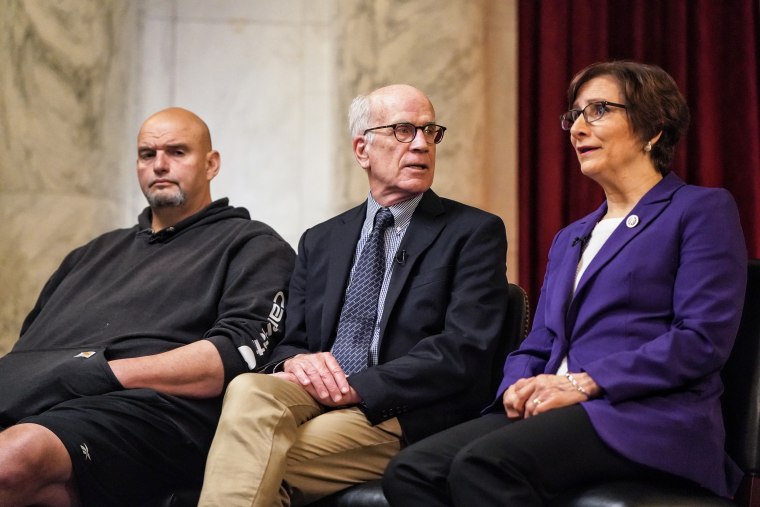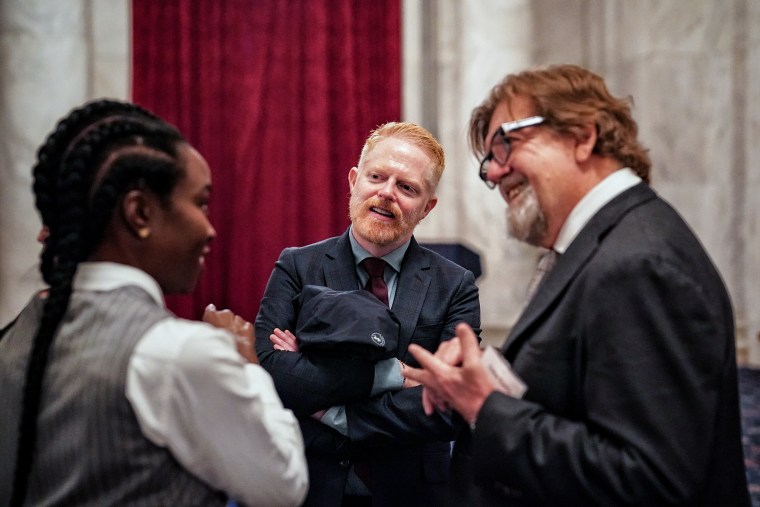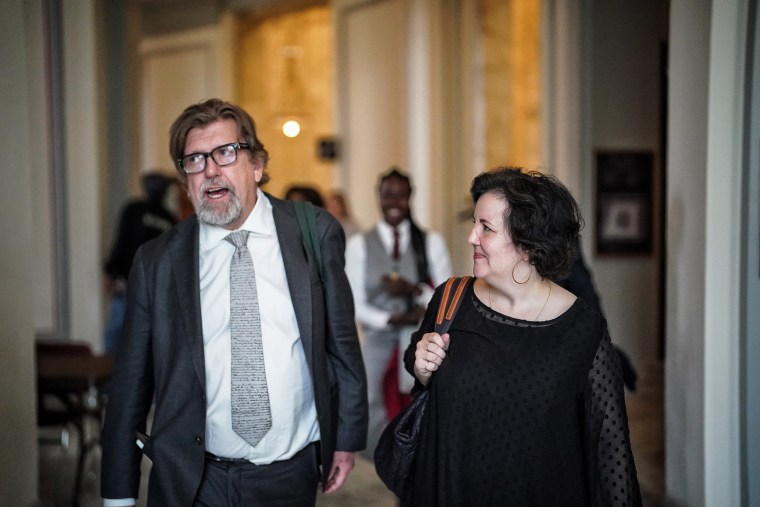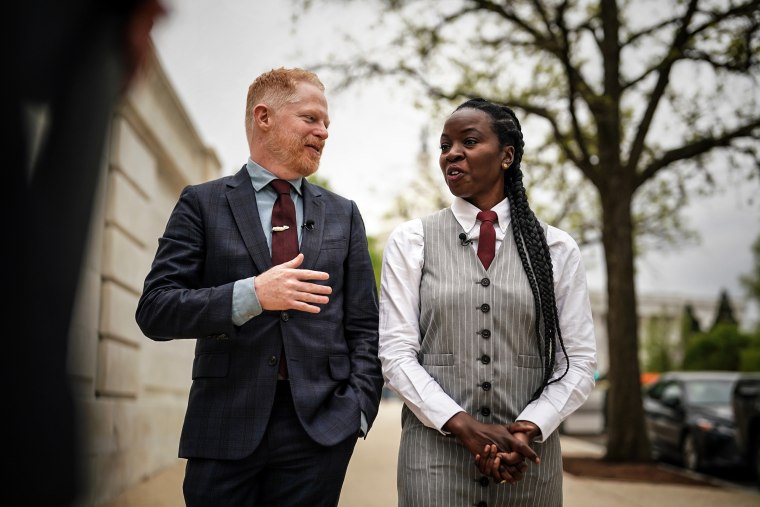Democrats fret it could be curtains for local theaters without federal funds

Four years after it began, Covid-19 is in the rearview mirror for millions of people and hundreds of businesses across the U.S. — but not for some theaters that require federal funding, according to some Democratic lawmakers.
Professional nonprofit theaters haven’t recovered from the pandemic, with dozens of stages set to shutter around the country without urgent infusions of cash. Now, a group of Democrats in Congress says “the show must go on” and is introducing legislation that could keep the curtains from closing.
The Supporting Theater and the Arts to Galvanize the Economy Act — or STAGE Act — would allocate $1 billion annually to invest in the industry, helping community theaters pay rent, employ artists and attract new audiences.

“We have people in all of our communities, red state or blue state, that are completely committed to making that local theater vital,” Sen. Peter Welch, D-Vt., said in an interview this month.
During National Theater Week, Welch, along with Sen. John Fetterman, D-Pa., and Rep. Suzanne Bonamici, D-Ore., met with Hollywood stars Jesse Tyler Ferguson and Danai Gurira at the Capitol to swell support for the bill.
“Careers are being built, dreams are being built, you know, where communities are coming together. I grew up a very shy, lonely kid. And, like, I found my people in the theater,” Ferguson, the “Modern Family” star, said in an interview.
Ferguson got his first big break on the small stage and still participates in plays, most recently at the iconic New York Public Theater in Manhattan.

The Public Theater’s artistic director, Oskar Eustis — who helped create “Hamilton” and oversees “Shakespeare in the Park” — said nonprofit theaters are “where the artists can find out who they are and become themselves before they go out into the wider world.”
“And it’s where communities can see themselves reflected,” he said.
Faced with rising costs and shrinking attendance, the theaters can’t pull through without Congress’ intervention, according to Eustis and Maria Manuela Goyanes, the artistic director of the Woolly Mammoth Theatre Company in Washington, D.C., who said the legislation is “absolutely critical to the survival of these theaters.”
The two argued that such nonprofit theaters “can’t survive by the marketplace alone” because the theater industry would only “serve the wealthy,” with most Broadway shows and expensive productions staging comebacks after the pandemic.
“Are we going to accept an America that is divided into warring tribes, where the rich are separate from everybody else, where right and left are utterly siloed?” Eustis asked. “Or are we going to insist on commonality that we have to be one country, e pluribus unum, and that in order to do that, we need the support of the federal government to create a culture that everybody can share?”

Unlike the bipartisan Save Our Stages Act, which surged $15 billion to the industry as part of a Covid relief package approved by Congress, the current bill has only Democratic support. In addition to Welch, Fetterman and Bonamici, Sens. Jack Reed, D-R.I., Alex Padilla, D-Calif., and Richard Blumenthal, D-Conn., have also co-sponsored the legislation.
Bonamici tried to appeal to Republicans by offering a fiscal argument.
“It supports the local economy,” she said, highlighting local theaters in her home state, Oregon, that spread business to shops and restaurants in town. “It really is an economic issue, as well as an issue of what it means to our community to be able to sit together and to laugh and to cry and to ask questions and to be together.”
Fetterman, who created a theater in his home in Pennsylvania that he rents free, said he has seen “firsthand the kind of development that it brings.”
“I’ve put my money where my mouth is on this. And I’ve provided an absolute free space for that community theater, Bare Bones Theater in Braddock, and they just actually wrapped up a show about two weeks ago,” he said, saying participating in community theater could help younger generations — including his young daughter, who took part in a few productions — trade in screen time for face time.
“I’m not really in a position to give advice on getting kids off their phones, because my kids are on their phones,” he joked.

Gurira, who played Gen. Okoye in the Academy Award-winning “Black Panther,” agreed, saying: “You want your kid off their phone and their tablet? Just put them in a theater program.”
“They really work, because they allow a child to feel the power of their creativity,” she added.
Like Ferguson, Gurira began her career in local community theaters and now not only acts in plays but also writes them. Pointing to her role as Richard III of England in a “Shakespeare in the Park” production in the summer of 2022, Gurira said such theaters are the only places where the imagination knows no bounds.
“That someone like me, a Zimbabwean American woman, is playing an old notorious British king — you know, that doesn’t happen anywhere but in the theater,” she said.







